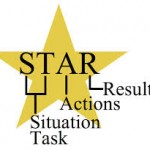 In a behavioral interview, it’s much more difficult for an applicant to “make up” responses that are untrue to his/her character. The behavioral interviewer typically will pick the applicant’s narrative to try to get an understanding of the applicant’s specific behavior(s). The interviewer will probe further for more depth or detail such as “Tell me more about your meeting with that difficult colleague,” or “Walk me through the decision making process you used”…
In a behavioral interview, it’s much more difficult for an applicant to “make up” responses that are untrue to his/her character. The behavioral interviewer typically will pick the applicant’s narrative to try to get an understanding of the applicant’s specific behavior(s). The interviewer will probe further for more depth or detail such as “Tell me more about your meeting with that difficult colleague,” or “Walk me through the decision making process you used”…
Category: HR Management (Page 2 of 6)
Adult Learning Theory tells us that being an effective educator involves understanding how adults learn best. Andragogy (adult learning) is a theory from the 1970’s by Malcolm Knowles, an American practitioner and theorist of adult education. The theory proposes a set of assumptions about how adults learn. It uses approaches to learning that are problem-based and collaborative and also emphasizes more equality between the teacher and learner…
 If you are a manager, you will have to deal with all kinds of employees in your job, including handling difficult employees. It is an unfortunate reality that every organization has a number of these characters. It is also true that most managers don’t like handling a difficult employee; they will much rather ignore the issue or skirt around it because this is much easier to do. But remember, if you are a manager or a supervisor and you don’t know how to handle a difficult employee, then you become the difficult employee yourself…
If you are a manager, you will have to deal with all kinds of employees in your job, including handling difficult employees. It is an unfortunate reality that every organization has a number of these characters. It is also true that most managers don’t like handling a difficult employee; they will much rather ignore the issue or skirt around it because this is much easier to do. But remember, if you are a manager or a supervisor and you don’t know how to handle a difficult employee, then you become the difficult employee yourself…
What HR functions offer the highest tangible impact in support of the business in terms of growth and profit? This has been a topic of discussion in organizations ever since HR managers started to realize the importance of identifying measurable returns of HR functions and activity. Now, according to a study last year by the world renowned Boston Consulting Group (BCG), the HR function that provides the highest impact is recruiting…
 How do most people react to change? Why do people resist change? Experience suggests that most people don’t like change and will resist it in different ways. Some will resist and react to change in subtle ways without showing their hand and others will openly challenge any form of change. Managers hoping to introduce any form of change that impacts others in the organization need to be aware of the 3 key reasons before implementing any substantial change in the workplace…
How do most people react to change? Why do people resist change? Experience suggests that most people don’t like change and will resist it in different ways. Some will resist and react to change in subtle ways without showing their hand and others will openly challenge any form of change. Managers hoping to introduce any form of change that impacts others in the organization need to be aware of the 3 key reasons before implementing any substantial change in the workplace…
Based on the brilliant book “The Three Laws of Performance” by Steve Zaffron and Dave Logan
 First of all, this short article is just an introduction to the basic ideas described in great detail in the “Three Laws of Performance” This is one of those must-read books for all executives and managers. Nonetheless, it is hoped this article can create interest for you to go read the book and discover how this set of ideas is changing world-class organizations and top managers in many countries…
First of all, this short article is just an introduction to the basic ideas described in great detail in the “Three Laws of Performance” This is one of those must-read books for all executives and managers. Nonetheless, it is hoped this article can create interest for you to go read the book and discover how this set of ideas is changing world-class organizations and top managers in many countries…
 One of the key challenges in any interview process is to assess if the candidate in front of you has the degree of maturity necessary for the position. We usually find it not too difficult to assess technical competence, communication skills and things like confidence and flair. Most interviewing skills do include assessment of personal attributes but maturity does not figurecourses talk about assessing technical, functional and personal and But innate maturity is what sets one candidate apart from another when all other things are equal
One of the key challenges in any interview process is to assess if the candidate in front of you has the degree of maturity necessary for the position. We usually find it not too difficult to assess technical competence, communication skills and things like confidence and flair. Most interviewing skills do include assessment of personal attributes but maturity does not figurecourses talk about assessing technical, functional and personal and But innate maturity is what sets one candidate apart from another when all other things are equal

Recent Comments